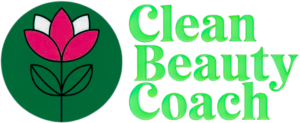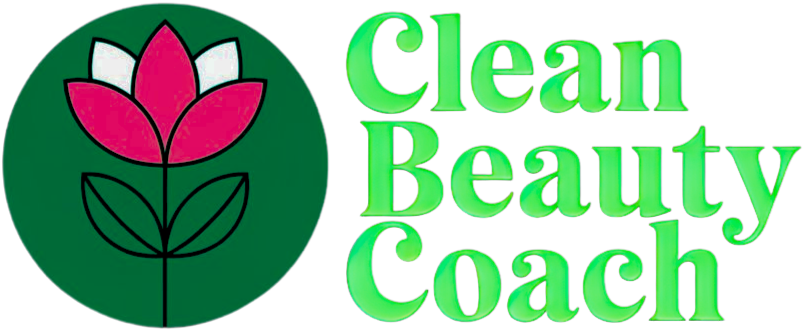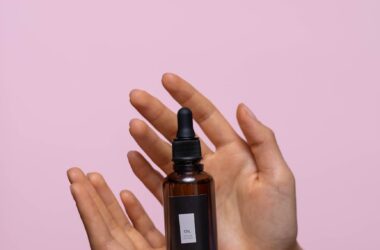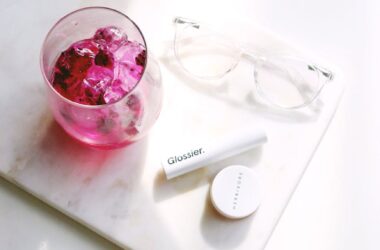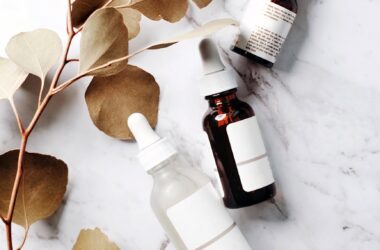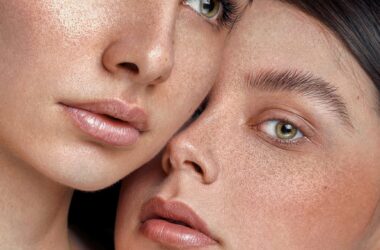In recent years, consumers have grown increasingly conscious about the products they use on their skin, leading to a significant shift in purchasing behaviors across the cosmetics industry.
This heightened awareness has given rise to the clean beauty movement, which emphasizes natural, non-toxic ingredients and sustainable packaging as cornerstones of responsible product development.
The clean beauty philosophy extends beyond just ingredients to encompass ethical practices, including cruelty-free testing methods and vegan formulations that respect both animals and the environment.
According to comprehensive market research by Grand View Research, the global organic personal care market is projected to reach a staggering $25.1 billion by 2025, reflecting the rapidly increasing consumer demand for clean beauty alternatives to conventional products.
This remarkable growth has prompted numerous cosmetic brands to reposition themselves under the ‘clean,’ ‘natural,’ or ‘green’ umbrella to capitalize on this expanding market segment.
However, the authenticity of such marketing claims often becomes a subject of intense scrutiny as consumers become more educated about greenwashing tactics employed across the industry.
This in-depth article will thoroughly examine one prominent player in this space – Tarte Cosmetics – and rigorously investigate their claims of being a clean, cruelty-free, and vegan brand through multiple lenses.
Tarte Cosmetics: A Comprehensive Company Overview
Founded in 1999 by entrepreneur Maureen Kelly in her New York City apartment, Tarte Cosmetics began with a simple yet ambitious vision to create a cosmetics line that would prove glamour can coexist with good-for-you ingredients.
Kelly initially invested her savings to develop her first product – a cheek stain that quickly gained popularity among beauty enthusiasts seeking more natural alternatives.
The brand experienced steady growth throughout the early 2000s, expanding its product line while maintaining its commitment to formulations that blended performance with naturally-derived ingredients.
By 2023, Tarte had evolved into a global beauty powerhouse offering hundreds of products across makeup, skincare, and beauty tools categories, with distribution in major retailers like Sephora, Ulta Beauty, and Macy’s.
The company’s headquarters in New York serves as the creative hub for product development, while manufacturing occurs across facilities in the United States, Italy, and South Korea to maintain quality control standards.
Tarte proudly positions itself in the market with the slogan “High-Performance Naturals,” emphasizing its purported commitment to using ingredients derived from natural sources while delivering professional-grade efficacy.
The brand has cultivated a strong social media presence with over 10 million followers across platforms, utilizing influencer partnerships and user-generated content to reinforce its image as a clean beauty pioneer.
In 2014, Tarte underwent a significant business transition when it was acquired by Japanese beauty conglomerate KOSÉ Corporation for an estimated $135 million, a development that would later raise questions about the brand’s independence regarding ethical practices.
The Complexities of “Clean Beauty” as a Concept
Before evaluating Tarte’s specific claims, it’s crucial to understand that the term “clean beauty” lacks standardized industry definition or regulatory framework, creating significant consumer confusion.
The Food and Drug Administration (FDA) exercises minimal oversight of cosmetic ingredient safety in the United States, reviewing and approving only color additives while leaving thousands of other ingredients largely unregulated.
This regulatory gap has allowed brands considerable freedom in how they define and market “clean” products, with interpretations ranging from free of specific controversial ingredients to fully organic formulations.
Consumer advocacy groups like the Environmental Working Group (EWG) have attempted to fill this void by creating their own certification programs and ingredient databases to help consumers navigate competing claims.
Industry experts generally agree that truly “clean” products should, at minimum, exclude ingredients with evidence of potential health concerns, including parabens, phthalates, formaldehyde-releasing preservatives, and certain sulfates.
The concept has evolved beyond simply avoiding harmful ingredients to encompass sustainable sourcing practices, ethical manufacturing conditions, and environmentally responsible packaging solutions.
Understanding this context is essential for evaluating whether Tarte genuinely delivers on its clean beauty promises or simply leverages trendy terminology to attract conscious consumers.
Defining Cruelty-Free and Vegan in Cosmetics
The ethical dimensions of cosmetics extend beyond ingredient safety to include how products interact with animals throughout their development and production cycles.
A genuinely cruelty-free product implies that it hasn’t been tested on animals at any stage of its development, including the finished product, individual ingredients, or formulation iterations.
This claim becomes more complex when considering regulatory requirements in different global markets, particularly China, where historically, certain imported cosmetics required animal testing by law.
The cruelty-free designation may also extend to a brand’s suppliers and third-party manufacturers, requiring comprehensive oversight of the entire supply chain to ensure compliance with non-animal testing policies.
A vegan cosmetic product, distinctly different from cruelty-free, means that it doesn’t contain any animal-derived ingredients or byproducts, regardless of how humanely they might have been sourced.
Common non-vegan ingredients in cosmetics include beeswax, lanolin (derived from sheep wool), carmine (a red pigment made from beetles), squalene (traditionally from shark liver), and various animal-based collagens.
It’s critically important for consumers to recognize that a product can be vegan without being cruelty-free (if plant ingredients were animal-tested), and conversely, cruelty-free without being vegan (if it contains humanely-sourced animal derivatives).
For a cosmetic product to be considered truly ethical by most conscious consumers’ standards, it ideally needs to satisfy both criteria simultaneously.
Analyzing Tarte’s Cruelty-Free Claims
Tarte Cosmetics explicitly claims to be a cruelty-free brand across its marketing materials, product packaging, and corporate communications.
According to detailed statements on the company’s official website, they assert that they do not test their products or ingredients on animals, nor do they commission or allow third parties to conduct such testing on their behalf.
Furthermore, Tarte maintains that their products are not sold in mainland China or other markets where animal testing would be required by law for imported cosmetics, thereby avoiding regulatory requirements that would compromise their cruelty-free stance.
Notably, Tarte has received certification through PETA’s Beauty Without Bunnies program, which requires brands to submit signed statements confirming their non-animal testing policies.
However, industry observers have pointed out that Tarte lacks certification from Leaping Bunny, widely considered the gold standard for cruelty-free verification due to its more rigorous auditing processes and supply chain monitoring requirements.
The Leaping Bunny certification involves comprehensive investigation of supplier ingredients and manufacturing processes, mandatory recommitment to standards annually, and agreement to independent audits.
PETA’s certification program, while respected and better than no certification, relies more heavily on company declarations and typically involves less exhaustive supply chain verification than Leaping Bunny’s protocol.
This certification discrepancy has prompted some skepticism among the most dedicated ethical consumers about the comprehensiveness of Tarte’s cruelty-free implementation across their entire production ecosystem.
Evaluating Tarte’s Vegan Product Range
Tarte Cosmetics has developed an extensive selection of vegan-friendly products that are free from common animal-derived ingredients found in conventional cosmetics.
The company maintains a dedicated vegan-friendly section on its website where customers can easily identify and purchase these products, demonstrating a commitment to transparency for consumers with specific ethical requirements.
This vegan range spans virtually every category in the Tarte lineup, including foundations, concealers, eyeshadow palettes, mascaras, lipsticks, and skincare formulations, providing comprehensive options for consumers seeking animal-free beauty solutions.
Many of Tarte’s bestselling products, including their iconic Shape Tape concealer and Amazonian Clay foundation, are available in vegan formulations, indicating that the brand’s commitment extends to mainstream offerings rather than being limited to niche products.
However, it’s essential to note that not all Tarte products qualify as vegan, with some formulations containing ingredients like beeswax, lanolin, carmine, and other animal-derived components.
The brand clearly labels which products meet vegan standards and which don’t, allowing customers to make informed purchasing decisions aligned with their personal ethical boundaries.
Tarte has gradually increased its proportion of vegan offerings over the years, suggesting an ongoing effort to reformulate legacy products with plant-based alternatives when technically feasible.
Despite these positive steps, Tarte remains a partially vegan brand rather than a fully vegan one, requiring consumers with strict vegan requirements to carefully check individual product specifications before purchasing.
Corporate Ownership and the KOSÉ Acquisition
In 2014, Tarte underwent a significant business transition when it was acquired by KOSÉ Corporation, a major Japanese beauty conglomerate, for approximately $135 million.
This acquisition immediately raised concerns among dedicated ethical consumers about whether Tarte would maintain its cruelty-free commitments under ownership by a larger corporation with diverse brands and global market strategies.
These concerns were particularly focused on KOSÉ’s operations in mainland China, where historically, certain imported cosmetics were subject to mandatory animal testing requirements imposed by regulatory authorities.
Tarte has repeatedly assured customers that despite the change in corporate ownership, the brand maintains independent operational control over its formulation decisions, ingredient sourcing, and testing protocols.
Corporate statements emphasize that Tarte products continue to adhere to their original cruelty-free policies and are not sold in markets where animal testing would be legally required.
Nevertheless, some consumer advocacy groups and ethical beauty watchdogs maintain that financial support of a parent company with mixed animal testing policies indirectly compromises Tarte’s ethical positioning.
This tension highlights the complex reality many formerly independent clean beauty brands face when acquired by larger corporations, balancing growth opportunities against potential compromises to founding principles.
The situation exemplifies how corporate ownership structures can complicate seemingly straightforward ethical claims, requiring consumers to determine their own comfort level with such arrangements.
Ingredient Transparency and Clean Formulations
Beyond animal testing and animal-derived ingredients, Tarte’s “clean beauty” claims also rest on their approach to ingredient selection and transparency in formulation.
The brand prominently advertises its “Formulated Without” list, highlighting potentially controversial ingredients they exclude, including parabens, mineral oil, phthalates, sodium lauryl sulfate, and triclosan.
Tarte emphasizes their use of naturally-derived ingredients like Amazonian clay, plant extracts, essential oils, and vitamins, positioning these as superior alternatives to synthetic components.
However, cosmetic chemists and beauty industry analysts note that Tarte’s formulations still contain numerous synthetic ingredients, reflecting the practical reality that few mass-market cosmetics can be formulated exclusively with natural components.
The brand’s approach represents a “clean hybrid” philosophy that aims to replace controversial synthetic ingredients with safer alternatives while retaining some conventional components necessary for performance, stability, and preservation.
Independent analysis of Tarte product ingredients by organizations like the Environmental Working Group generally yields moderate to favorable safety ratings, though assessments vary by specific product within the brand’s extensive lineup.
Tarte has demonstrated increasing transparency by providing more comprehensive ingredient information on their website and packaging, allowing consumers to make more informed decisions based on their personal ingredient preferences.
While not adhering to the strictest possible interpretation of “clean beauty,” Tarte generally maintains formulations that avoid the most controversial ingredients while balancing performance expectations from their mainstream consumer base.
Expert Assessments of Tarte’s Ethical Claims
Cosmetic industry experts and ethical beauty researchers have offered mixed evaluations of Tarte’s positioning as a clean, cruelty-free, and partially vegan brand.
Ruth Purcell, Director of the Ethical Cosmetics Institute, acknowledges Tarte’s progress but notes: “There’s a meaningful difference between brands that were founded explicitly on comprehensive ethical principles and those that have adopted selective ethical practices within a conventional business model.”
Environmental toxicologist Dr. James Chen observes that Tarte “occupies a middle ground in clean beauty – better than conventional mass brands regarding ingredient safety, but not matching the rigorous standards of premium clean beauty pioneers.”
Animal rights advocates generally recognize Tarte’s PETA certification as meaningful but continue to encourage the brand to pursue the more rigorous Leaping Bunny certification to solidify their cruelty-free credentials.
Sustainable packaging experts have criticized Tarte’s heavy use of plastic packaging and limited recycling initiatives, suggesting that truly clean beauty should extend beyond formulations to environmental impact considerations.
Beauty industry analysts note that Tarte’s balanced approach has contributed to its commercial success by appealing to mainstream consumers interested in cleaner options without alienating them with extremely restrictive formulation policies.
The consensus among experts suggests that while Tarte demonstrates genuine efforts toward more ethical practices, there remain opportunities for the brand to strengthen their commitments across multiple dimensions of clean beauty.
Conclusion: Evaluating Tarte’s Clean Beauty Status
In the final analysis, Tarte Cosmetics presents a complex case study in the evolution of clean beauty within the mainstream cosmetics industry.
The brand clearly demonstrates meaningful commitments to certain aspects of clean beauty philosophy, particularly in their cruelty-free policies, vegan product options, and avoidance of specific controversial ingredients.
Their transparency regarding which products meet vegan standards and their detailed ingredient disclosures reflect a respect for consumer autonomy and informed decision-making.
However, Tarte’s clean beauty implementation appears selective rather than comprehensive, with opportunities for improvement in certification standards, packaging sustainability, and corporate ownership considerations.
The KOSÉ acquisition introduces unavoidable questions about indirect support of non-cruelty-free practices through corporate profit flows, even if Tarte’s individual product line maintains its ethical standards.
For consumers with moderate ethical expectations seeking better-than-conventional options, Tarte likely satisfies many reasonable criteria for a cleaner beauty alternative.
Those with stringent ethical requirements, however, might prefer brands with more comprehensive commitments across all dimensions of clean beauty, including independent ownership, Leaping Bunny certification, 100% vegan formulations, and sustainable packaging initiatives.
Ultimately, whether Tarte qualifies as a genuinely “clean” brand depends largely on individual consumer priorities and where each person draws their personal ethical boundaries in an industry where perfect solutions remain elusive.
The most prudent approach for conscious consumers remains researching specific products rather than relying on broad brand positioning, and supporting those items that best align with their individual values and requirements.
